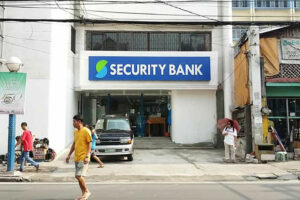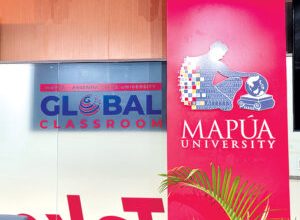Building the Philippines’ blockchain economy: Policy, talent, and use cases for growth

In the early 2000s, the Philippines witnessed the explosive growth of its business process outsourcing (BPO) sector, transforming the country into a global hub for customer service, back-office support, and IT-related work. That same drive for innovation and economic opportunity must now be channeled into the next technological revolution: blockchain.
Much of the public conversation around blockchain has been limited to cryptocurrency and speculative investing. But the real promise of blockchain extends far beyond trading digital coins.
At its core, blockchain is a decentralized, tamper-proof ledger that records transactions securely and transparently. It offers the foundation for a new era of trust, one in which intermediaries can be bypassed, processes can be verified instantly, and data integrity is preserved without compromise.
In a country where corruption, red tape, inefficiency, and lack of transparency often hinder progress, blockchain offers an opportunity to leapfrog old systems. From land titling and government procurement, to voting systems, identity verification, and logistics management, blockchain holds the potential to transform governance and business alike. It could bring about what we’ve long aspired for: a fairer, more accountable, and more efficient Philippines.
For instance, blockchain can help streamline government transactions by creating permanent, transparent audit trails. Land registration, a process long plagued by delays and disputes, can be secured through blockchain-powered digital registries. In healthcare, patient records can be stored securely yet remain accessible across systems and institutions. The use of blockchain in public procurement can prevent rigged bidding processes by ensuring immutability of records. Even in agriculture, blockchain can be used to trace food from farm to table, ensuring safety, sustainability, and authenticity.
But for this promise to materialize, the country must take deliberate steps to create the infrastructure needed to support a robust blockchain economy. It begins with policy. While the Philippines has made some headway — with the Bangko Sentral ng Pilipinas issuing licenses to virtual asset service providers, and the Cagayan Economic Zone Authority establishing crypto-friendly zones — the country still lacks a comprehensive national blockchain strategy.
What is needed is a policy framework that provides regulatory clarity for blockchain-based enterprises while also ensuring consumer protection. A clear legal environment is critical for attracting both local and international investment. It should extend beyond crypto and cover a wide range of blockchain use cases, from identity management and smart contracts to decentralized finance and supply chain monitoring. Policies should harmonize with international regulations to ensure interoperability, while creating space for innovation through sandbox environments.
Equally critical is the development of local talent. The blockchain industry, globally, is facing a shortage of skilled professionals. In the Philippines, while many Filipinos have entered the crypto space in roles such as community managers or customer support agents, there remains a dearth of blockchain developers, architects, auditors, and legal experts. This is a missed opportunity. Blockchain is a high-value skill that can lift young Filipinos into the new digital economy — but only if we invest in education and upskilling.
Government agencies, universities, tech schools, and even companies must collaborate to launch training programs, bootcamps, and certifications focused on blockchain development, smart contracts, decentralized applications, and token economics. These programs can be integrated into existing computer science or business curricula or offered as standalone courses via the Technical Education and Skills Development Authority, better known as TESDA, the Department of Information and Communications Technology (DICT), or private providers. Just as the BPO boom was supported by English training and voice skills development, the blockchain wave must be underpinned by technical training and startup incubation.
At the same time, we need to move from theoretical support to actual deployment. Real-world blockchain use cases must be implemented at scale. The DICT and local government units can take the lead by digitizing government services through blockchain — starting with business permits, clearances, or property records. Universities can issue blockchain-based diplomas that can’t be faked. Hospitals can pilot interoperable medical record systems. The judiciary can experiment with tamper-proof evidence handling. These flagship initiatives will serve as proof points for blockchain’s effectiveness, creating trust and momentum for adoption.
Private enterprises also have a key role to play. Conglomerates in industries such as retail, logistics, banking, and insurance stand to benefit significantly from blockchain. For example, logistics companies can use blockchain to track cargo with full transparency. Retailers can ensure the authenticity of premium goods. Banks can leverage smart contracts for faster settlement and fraud prevention. Small and medium enterprises can use blockchain to prove supply chain compliance or gain access to financing via decentralized platforms.
Other countries have already taken the lead. Estonia, one of the most digitally advanced nations in the world, has implemented blockchain across over a thousand government services, including healthcare, business registration, and even e-voting. In Africa, countries like Kenya and Ghana are experimenting with blockchain to secure land titles and reduce fraud. In Asia, South Korea uses blockchain for educational credentialing, and Singapore has invested heavily in blockchain for interbank payments and digital identity.
These countries succeeded not just because of the technology, but because they built ecosystems — where governments, businesses, developers, and educators worked together under clear policies with strategic vision. The Philippines must do the same.
To build this ecosystem, collaboration is essential. Agencies like the Department of Trade and Industry, DICT, Bangko Sentral, the Securities and Exchange Commission, and the National Economic and Development Authority (now the Department of Economy, Planning, and Development) should convene with blockchain developers, enterprises, and academic institutions to create a unified roadmap. This should include R&D funding, tax incentives for blockchain startups, data protection alignment, pilot programs, and investor outreach. Organizations like the Blockchain Council of the Philippines can act as facilitators, bridging the gap between builders and bureaucrats, and ensuring that the ecosystem is both inclusive and competitive.
The opportunity is massive. Blockchain is still in its early stages, and countries that embrace it now will define its future. For the Philippines, this is not merely a technological challenge — it is a chance to reclaim leadership in the digital economy. If we move decisively, we can replicate our BPO success and even surpass it by building a high-value, innovation-driven blockchain economy.
We missed the manufacturing wave. We caught the outsourcing wave. Now, we have another chance. The world is watching. It’s time to build.
Dr. Donald Lim is the founding president of the Global AI Council Philippines and the Blockchain Council of the Philippines, and the founding chair of the Cybersecurity Council, whose mission is to advocate the right use of emerging technologies to propel business organizations forward. He is currently the president and COO of DITO CME Holdings Corp.




